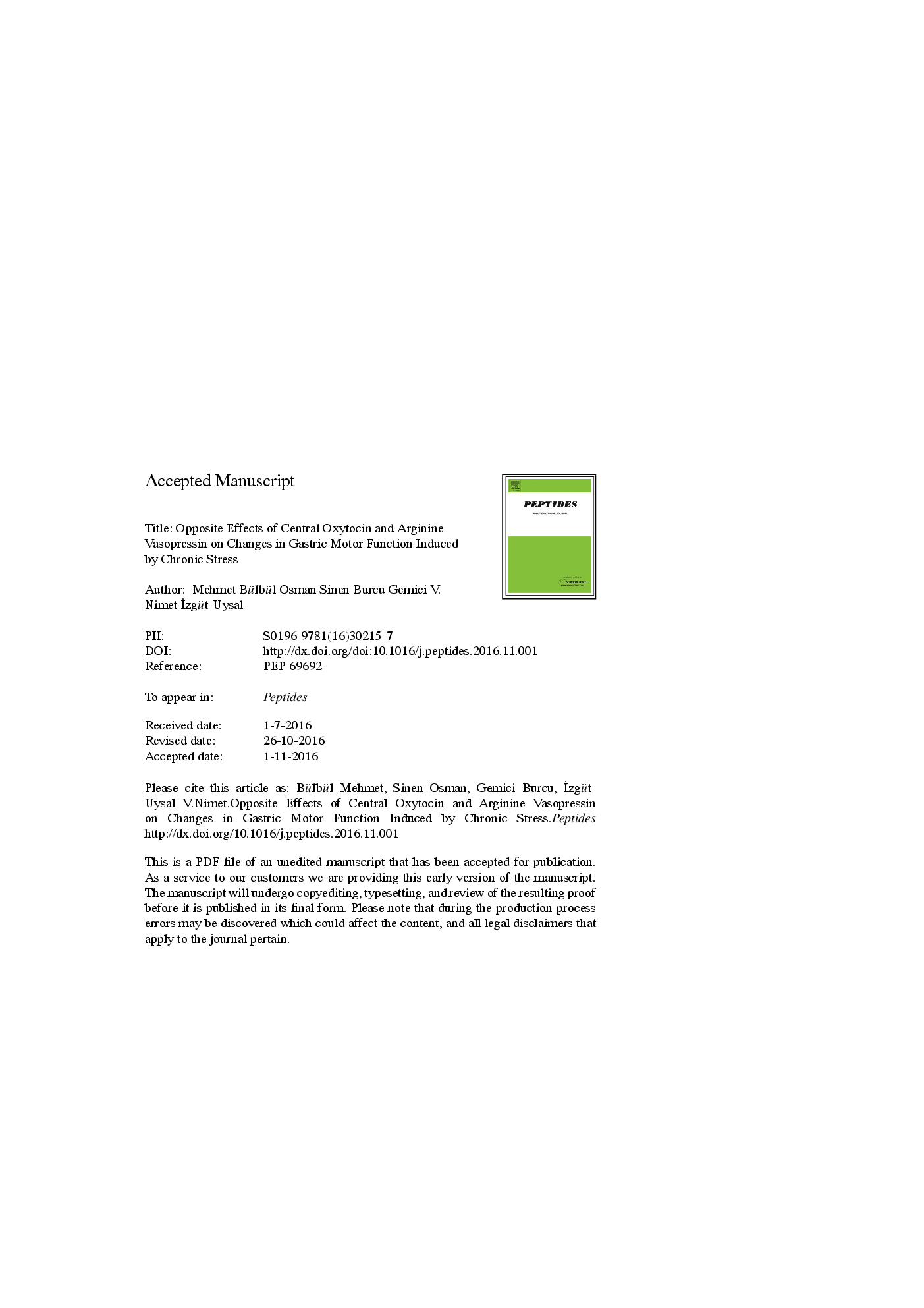Hypothalamic oxytocin (OXT) and arginine vasopressin (AVP) are known to act oppositely on hypothalamic-pituitary-adrenal (HPA) axis, stress response and gastrointestinal (GI) motility. In rodents, exposure to restraint stress (RS) delays gastric emptying (GE), however, repeated exposure to the same stressor (chronic homotypic stress (CHS)), the delayed GE is restored to basal level, while hypothalamic OXT is upregulated. In contrast, when rats are exposed to chronic heterotypic stress (CHeS), these adaptive changes are not observed. Although the involvement of central OXT in gastric motor adaptation is partly investigated, the role of hypothalamic AVP in CHeS-induced maladaptive paradigm is poorly understood. Using in-vivo brain microdialysis in rats, the changes OXT and AVP release from hypothalamus were monitored under basal non-stressed (NS) conditions and in rats exposed to acute stress (AS), CHS and CHeS. To investigate the involvement of central endogenous OXT or AVP in CHS-induced habituation and CHeS-induced maladaptation, chronic central administration of selective OXT receptor antagonist L-371257 and selective AVP V1b receptor antagonist SSR-149415 was performed daily. OXT was measured higher in AS and CHS group, but not in CHeS-loaded rats, whereas AVP significantly increased in rats exposed to AS and CHeS. Additionally, the response of the hypothalamic OXT- and AVP-producing cells was amplified following CHS and CHeS, respectively. In rats exposed to AS for 90 min solid GE significantly delayed. The delayed-GE was completely restored to the basal level following CHS, however, it remained delayed in CHeS-loaded rats. The CHS-induced restoration was prevented by L-371257, whereas SSR-149415 abolished the CHeS-induced impaired GE. A significant correlation was observed between GE and (i) OXT in CHS-loaded rats (rho = 0.61, p < 0.05, positively), (ii) AVP in CHeS-loaded rats (rho = 0.69, p < 0.05, negatively). Under long term stressed conditions, the release of AVP and OXT from hypothalamus may vary depending on the content of the stressors. Central AVP appears to act oppositely to OXT by mediating CHeS-induced gastric motor maladaptation. Long term central AVP antagonism might be a pharmacological approach for the treatment of stress-related gastric motility disorders.


